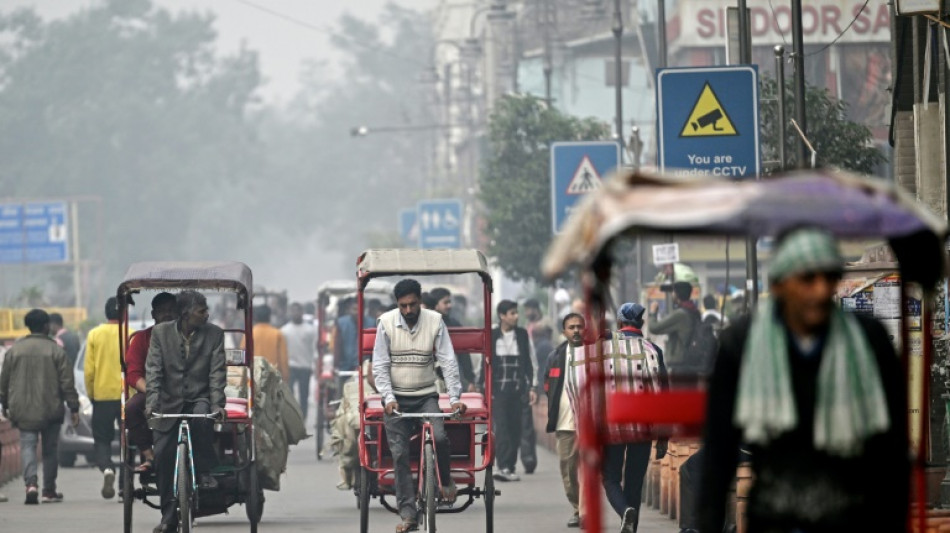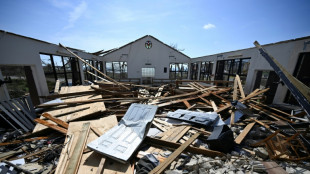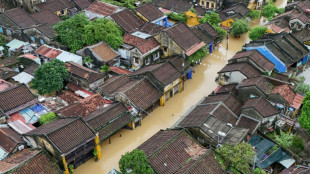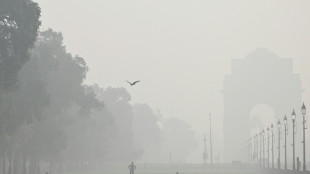
-
 Milan deny Roma top spot in Serie A, Inter beat Verona
Milan deny Roma top spot in Serie A, Inter beat Verona
-
Lens back up to third in Ligue 1 as Lyon held at Brest

-
 NFL-best Colts fall to Steelers, Packers lose to Carolina
NFL-best Colts fall to Steelers, Packers lose to Carolina
-
'Regretting You' wins spooky slow N. American box office

-
 'Just the beginning' as India lift first Women's World Cup
'Just the beginning' as India lift first Women's World Cup
-
Will Still sacked by struggling Southampton

-
 Malinin wins Skate Canada crown with stunning free skate
Malinin wins Skate Canada crown with stunning free skate
-
Barca beat Elche to recover from Clasico loss

-
 Jamaica deaths at 28 as Caribbean reels from colossal hurricane
Jamaica deaths at 28 as Caribbean reels from colossal hurricane
-
Verma and Sharma power India to first Women's World Cup triumph

-
 Auger-Aliassime out of Metz Open despite not yet securing ATP Finals spot
Auger-Aliassime out of Metz Open despite not yet securing ATP Finals spot
-
Haaland fires Man City up to second in Premier League

-
 Sinner says staying world number one 'not only in my hands'
Sinner says staying world number one 'not only in my hands'
-
Ready for it? Swifties swarm German museum to see Ophelia painting

-
 Pope denounces violence in Sudan, renews call for ceasefire
Pope denounces violence in Sudan, renews call for ceasefire
-
Kipruto, Obiri seal Kenyan double at New York Marathon

-
 OPEC+ further hikes oil output
OPEC+ further hikes oil output
-
Sinner returns to world number one with Paris Masters win

-
 Sinner wins Paris Masters, reclaims world No. 1 ranking
Sinner wins Paris Masters, reclaims world No. 1 ranking
-
Nuno celebrates first win as West Ham boss

-
 Obiri powers to New York Marathon win
Obiri powers to New York Marathon win
-
Two Louvre heist suspects a couple with children: prosecutor

-
 Verma, Sharma help India post 298-7 in Women's World Cup final
Verma, Sharma help India post 298-7 in Women's World Cup final
-
Inter snapping at Napoli's heels, Roma poised to pounce

-
 India space agency launches its heaviest satellite
India space agency launches its heaviest satellite
-
Wolves sack Pereira after winless Premier League start

-
 Debutants Berkane among CAF Champions League top seeds
Debutants Berkane among CAF Champions League top seeds
-
Sundar steers India to five-wicket win over Australia in 3rd T20

-
 What we know about the UK train stabbings
What we know about the UK train stabbings
-
Jonathan Milan wins wet Tour de France Singapore Criterium

-
 Canadian teen Mboko wins Hong Kong Open for second WTA title
Canadian teen Mboko wins Hong Kong Open for second WTA title
-
Two children among dead in Russian blitz on Ukraine

-
 South Africa opt to bowl against India in Women's World Cup final
South Africa opt to bowl against India in Women's World Cup final
-
Dominant McKibbin wins Hong Kong Open to seal Masters spot

-
 US Navy veterans battle PTSD with psychedelics
US Navy veterans battle PTSD with psychedelics
-
'Unheard of': Dodgers in awe of iron man Yamamoto

-
 UK police probe mass train stabbing that wounded 10
UK police probe mass train stabbing that wounded 10
-
'It's hard' - Jays manager Schneider rues missed chances in World Series defeat

-
 Women's cricket set for new champion as India, South Africa clash
Women's cricket set for new champion as India, South Africa clash
-
Messi scores but Miami lose as Nashville level MLS Cup playoff series

-
 Dodgers clinch back-to-back World Series as Blue Jays downed in thriller
Dodgers clinch back-to-back World Series as Blue Jays downed in thriller
-
Vietnam flood death toll rises to 35: disaster agency

-
 History-making Japan golf twins push each other to greater heights
History-making Japan golf twins push each other to greater heights
-
Death becomes a growing business in ageing, lonely South Korea

-
 India's cloud seeding trials 'costly spectacle'
India's cloud seeding trials 'costly spectacle'
-
Chiba wins women's title, Malinin leads at Skate Canada

-
 Siakam sparks injury-hit Pacers to season's first NBA win
Siakam sparks injury-hit Pacers to season's first NBA win
-
Denmark's fabled restaurant noma sells products to amateur cooks

-
 UK train stabbing wounds 10, two suspects arrested
UK train stabbing wounds 10, two suspects arrested
-
Nashville top Messi's Miami 2-1 to level MLS Cup playoff series


South Asia air pollution fell in 2022, but remains major killer: report
A surprise improvement in air quality in South Asia in 2022 drove a decline in global pollution, with favourable weather a likely factor, a new report said Wednesday.
But the region continues to breathe the world's most-polluted air, with its residents losing more than 3.5 years of life expectancy on average, the annual Air Quality Life Index (AQLI) warned.
And globally, most countries have either no pollution standards or are failing to meet what they have set, subjecting their citizens to air quality that causes a broad range of health problems.
For two decades, air pollution has increased annually in South Asia, but satellite data for 2022 -- the most recent year available -- showed a surprise 18 percent fall.
The declines were recorded in every country in the region apart from Sri Lanka, according to the report, produced by the University of Chicago's Energy Policy Institute (EPIC).
"While it is difficult to conclusively determine what reduced PM2.5 levels across South Asia, it is safe to posit that favourable meteorological conditions may have played a part," the report said, referring to tiny particulates that can travel deep into the body.
The widespread nature of the decline, along with the above-average rainfall across the region in 2022, lend support to that theory.
"Only time will tell whether policy changes are having an impact," the report added, warning that people in South Asia are still breathing air eight times more polluted than the World Health Organization deems safe.
"Continued observations, efforts towards policy enforcement and monitoring impacts of policy interventions will be critical for understanding and sustaining these reductions," the report said.
The decline in South Asia led to a nine percent global drop in air pollution, even as poor air quality spiked elsewhere, including in the Middle East and North Africa, with concentrations up 13 percent from a year earlier.
The report warned an ongoing lack of air quality data on the ground is hampering policy-making and implementation.
"Highly polluted countries that have little or no air quality data often fall into a bad feedback cycle where having little data leads to little attention or policy investment in the issue, which reinforces little demand for data," said Christa Hasenkopf, director of EPIC's Clean Air Program.
Earlier this year, the centre launched a $1.5 million fund to finance the installation of air quality monitors that offer open data worldwide.
Air pollution as a whole receives relatively little funding despite its outsized impact on human health.
For example, in some of Africa's most-polluted nations, air pollution "is a more serious threat to life expectancy than HIV/AIDS, tropical diseases, malaria or water, sanitation and handwashing", the report said.
There are bright spots, however, including China's remarkably successful efforts to combat dirty air.
It took measures including restricting the number of cars in big cities, reducing heavy industry capacity and banning new coal plants from certain regions.
It has reduced air pollution by 41 percent since 2013, meeting its national standards and adding an average of two years of life expectancy for its citizens, AQLI said.
Still, even in China, pollution remains more than five times higher than WHO guidelines, and the benefits of Beijing's measures are unevenly spread.
Air quality remains poor across several major provinces, and in some prefectures has actually increased since 2013.
W.Huber--VB




